Anyone you ask has a different reason for camping. Some like to disconnect from technology and reconnect with nature. Some families go camping to revitalize their relationships, away from all the distractions at home. Many youth organizations teach young people how to build a fire, pitch a tent, or read a compass. Camping means different things to different people.
So why do you camp? Here are some common reasons why people choose to "rough it."
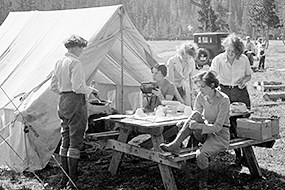
NPS Photo / George A. Grant
Some activities are just passed on from generation to generation, and camping is one of them. People have been camping in national parks for over 100 years, and many visitors who camped as children, now camp as parents and grandparents, passing on an appreciation for time outdoors. Will you pass on this tradition?
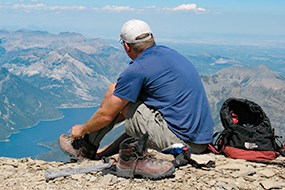
NPS Photo / David Restivo
Explore Nature
Camping, whether that's pitching a tent in the wilderness or parking your RV in a frontcountry campground, is an immersive experience. Campers feel the rain and wind and snow. (And sunshine!) They might see wildlife in their natural setting. People get to see natural features, like mountains, seashores, or sand dunes, at different times of day. Spending nights outdoors allows people to view constellations not visible at home and hear the sounds of nature, like the yips of coyotes or the trills of songbirds. More than any other reason, people camp to have an adventure in nature.
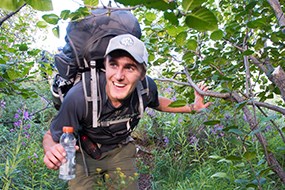
NPS Photo / Kent Miller
Camping...it does a body (and mind) good. The physical demands of camping in the backcountry clearly count as exercise. But any kind of camping has health benefits. Some are straightforward, like setting up camp or hiking. Mental health improves outside. Researchers linked outdoor activity to a decrease in depressive thoughts. Sleeping under the stars helps you get in touch with your natural circadian rhythms, a foundation for high quality sleep and health.
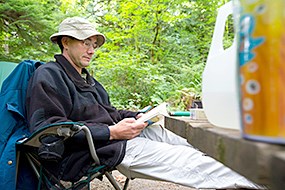
NPS Photo
Sometimes you just need a break from technology. It might be hard to escape it at home, but some parks and campgrounds have poor, or no cell connectivity, and many visitors take advantage of that. These places are perfect locations to put down the digital devices in our lives and focus on the basics that we still have access to. Sit back and relax with a good book, draw in a sketchbook, or write in a journal.
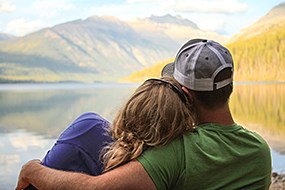
NPS Photo / David Restivo
When you travel to parks, natural areas, or even your own backyard to spend a few days and nights outside, your choice of companions matters. Face-to-face conversations replace personal technological devices for entertainment. And shared experiences shape the memories that make up life-long relationships. Camping is a great time to get back to the basics, without distractions. Sharing stories. Being quiet together. Enjoying a dehydrated meal as if it's a 4-star cuisine.
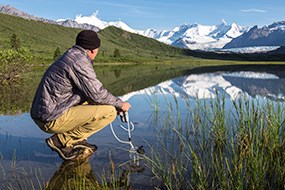
NPS Photo / Jacob Frank
Camping requires you to rely on yourself and your companions to meet your basic needs--purify water, build a fire, survive the elements, be alone with your thoughts. But these are more than just survival skills; these abilities give you confidence and self-worth that carries over into all other aspects of your life. It just takes a little effort and guidance, and you'll be setting up tents in no time!
Last updated: July 2, 2024
